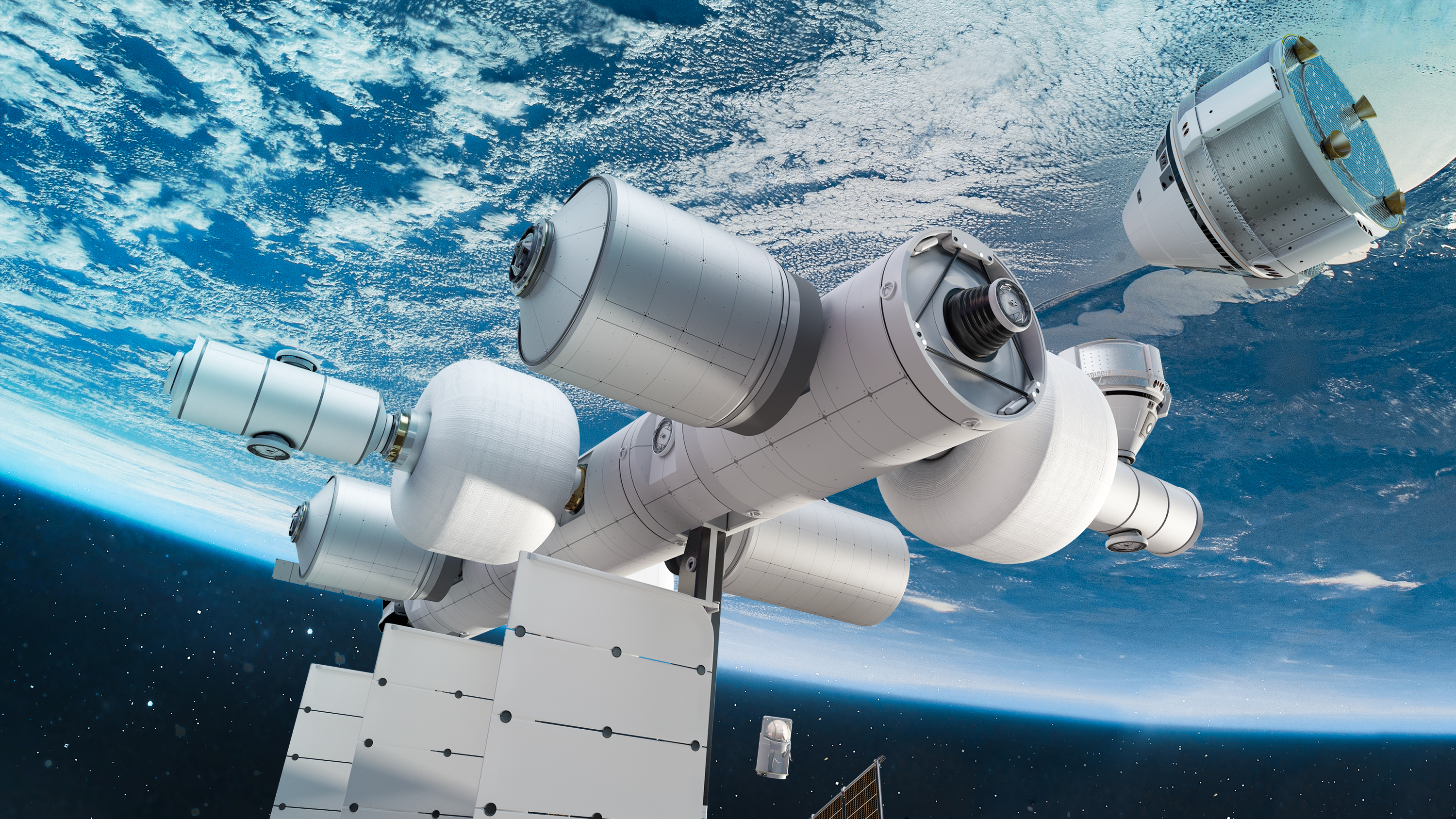Just two days after officially (and quietly) confirming that it intends to replace the International Space Station with a commercial station by 2030, NASA has awarded over $400 million in agreements to three companies to further develop private station plans.
The three companies, which received the awards under the agency’s Commercial low Earth orbit (LEO) Destinations program, are:
- Nanoracks for $160 million
- Blue Origin for $130 million
- Northrop Grumman for $125.6 million
NASA received eleven proposals in total, director of commercial spaceflight Phil McAlister said Thursday. He added that of the three chosen proposals, there was a diversity of technical concepts and a variety of logistical and launch vehicle options offered. “This diversity not only enhances the likelihood of success of NASA strategy, but it also leads to a high degree of innovation, which is critical in most commercial space endeavors,” he said.
The three companies have already released a handful of details about their proposals. Blue Origin is calling its station concept “Orbital Reef,” and it is designing it with Boeing, Sierra Space and others. The team said it wants to launch the station in 2027. Meanwhile, Nanoracks is calling its station, which is being developed with its parent company Voyager Space and aerospace prime Lockheed Martin, “Starlab.” While Northrop didn’t give its station proposal a flashy name, it’s working with Dynetics to deliver a modular design based around its Cygnus spacecraft.
These substantial awards mark the first phase of a two-phase process as NASA seeks to ensure that there will be no gap between the retirement of the ISS and the introduction of a new station. NASA has repeatedly stressed, both to Congress and more recently in a report by the Office of Inspector General, that the overall success of the development of a thriving economy in LEO is dependent upon avoiding this gap.

“If there is no habitable commercial destination in low Earth orbit after the ISS is decommissioned, NASA will be unable to conduct microgravity health research and technology demonstrations needed for long-duration human exploration missions to the Moon and Mars, significantly increasing the risk of—or delaying—those missions,” the agency said in the report.
To dodge this potential scenario, NASA has proposed for one or more commercial LEO “destinations” (as it sometimes calls stations) to be operational by 2028 — giving a two-year overlap before the ISS is retired by the end of the decade. While that report raised doubts as to the feasibility of hitting that timeline, each of the three companies and NASA executives were confident in their ability to avoid a station gap.
“I can’t believe that a decade after commercial cargo was launched, folks are still questioning the robustness and ingenuity and flexibility of the commercial pathway,” Jeffrey Manber said. “Sure, there are challenges going forward, […] we have a robustness, we have a multiplicity of providers working on this. This is exactly the right way to go forward on risk mitigation, to have multiple providers on the commercial pathway.”
This first set of awards will help the companies develop their designs, work that is expected to continue through 2025.
In the second phase of the program, which is targeted to commence in 2026, NASA intends to certify for human use one or more stations — from this group of companies or other entrants — and ultimately become one of many customers purchasing in-orbit services and use of the stations. NASA said in a statement that this will allow it to focus on its Artemis program, which aims to return humans to the moon, and eventually human spaceflight to Mars.
Notably absent is Axiom Space, which won a separate award to send up modules to attach to the ISS before separating and self-orbiting as its own station, but the company clarified that it did not bid on CLD.
The big question, of course, is how much these stations will end up costing — and how much of the overall cost NASA will end up paying. McAlister said the agency “encourage bidders to maximize their financial contribution to these activities,” and he noted that non-NASA investment currently stood at around 60% with NASA’s contribution under 40%. But the three companies, and the agency, wouldn’t say much more about how much capital they’re anticipating expending for designing, launching and operating their stations.
The story has been updated with additional details from the media briefing.































Comment